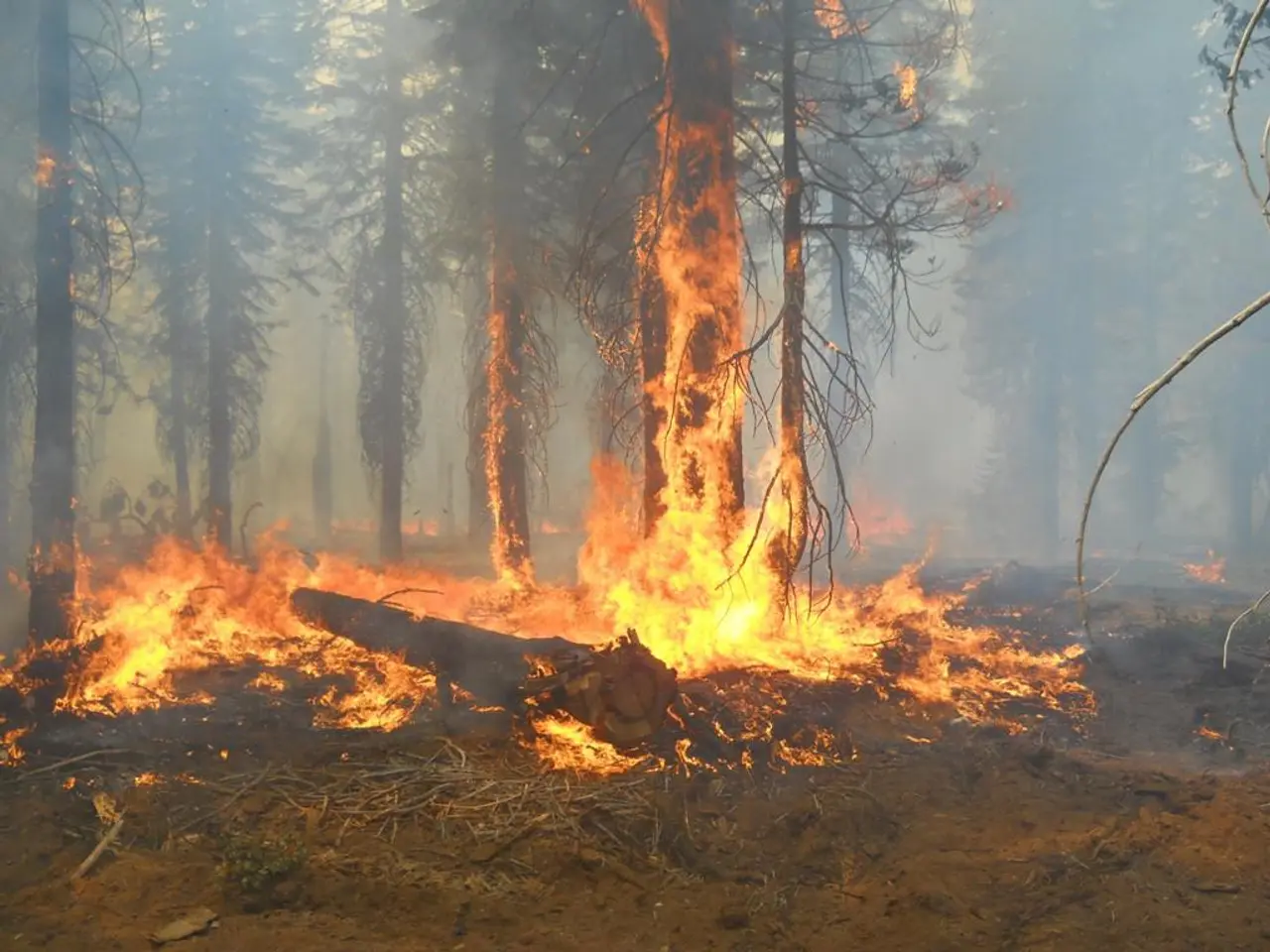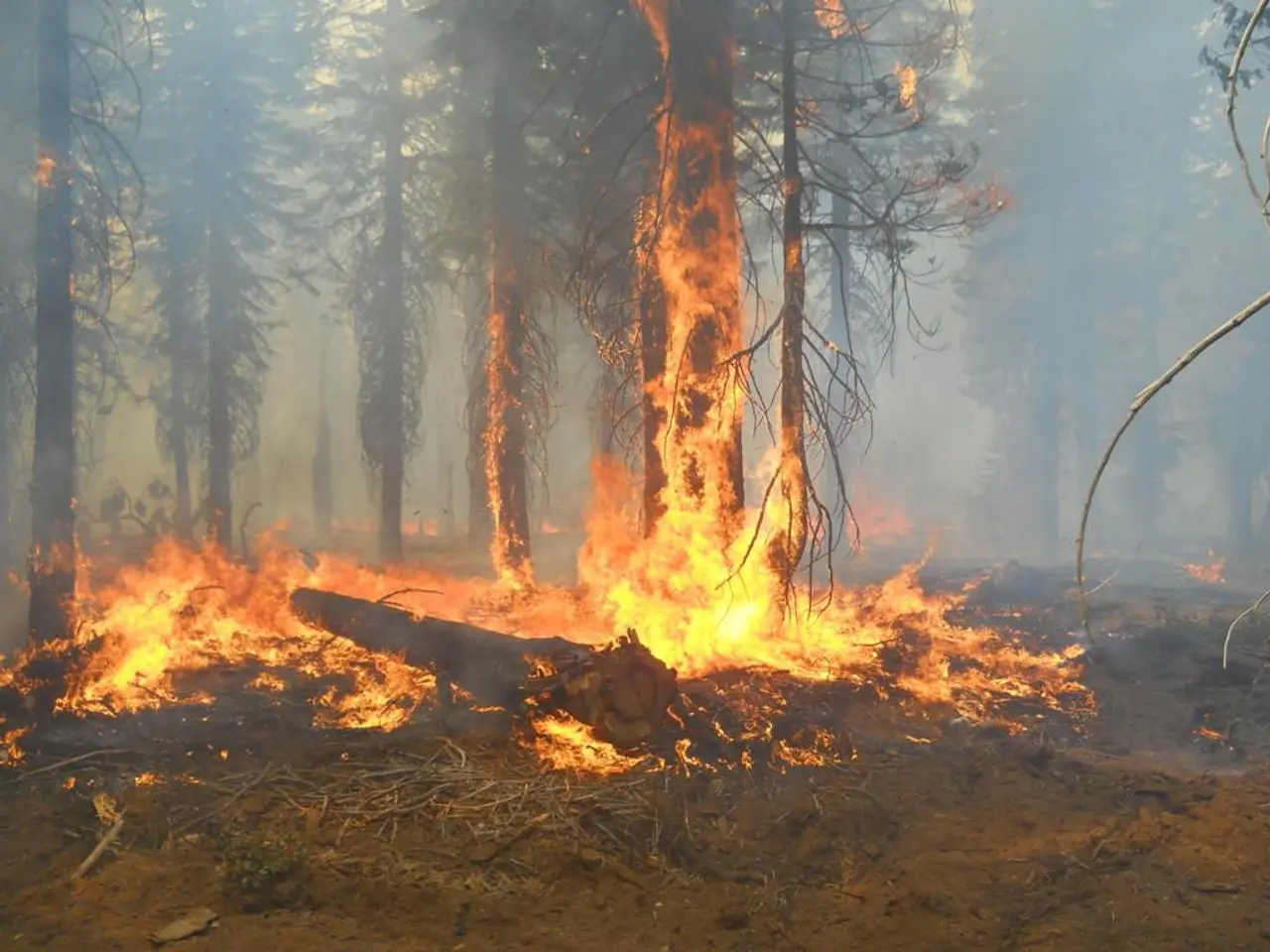Fires in the southern regions of Europe and Turkey show signs of abating, while temperatures continue to climb.
A series of forest fires are currently ravaging parts of Southern Europe and Turkey, with unfavorable weather conditions exacerbating the situation.
In Portugal, Elisio Oliveira, head of civil protection, has warned of a new heatwave and temperatures exceeding 40 degrees Celsius, making the weather conditions unfavorable. A fire near the town of Ponte da Barca remains challenging to control as of Saturday. Meanwhile, a second large fire in the Portuguese town of Arouca has been brought under control.
The situation remains tense in the south of Italy, particularly on the island of Sicily, where more than 3,700 fires were registered between May and late July. Firefighters in Cuevas del Valle south of Ávila in Spain received unexpected help from rain, almost completely extinguishing the flames. However, the forest fire risk remains high in Italy, especially in the south. Several fires were also extinguished on Sardinia in Italy this week.
Greece is also on high alert due to expected windy conditions, with the forest fire risk remaining extremely high in the south of Euboea, east of Crete, and the region around Athens. The heatwave is also expected to affect neighboring Spain.
Isolated fires were reported in rural regions of Thrace and Izmir in Turkey, but they were quickly extinguished. However, more than 2,000 forest fires have broken out in Turkey so far this year, with at least 14 people, including firefighters, having died in the fires.
Current strategies for managing and preventing forest fires in Southern Europe and Turkey focus on rapid response, nature-based forest management, ecosystem restoration, community engagement, and improved early warning systems. In Turkey, fire response time has been significantly reduced to an average of 15 minutes, with plans to cut it further to 12 minutes.
In Southern Europe, including countries like Portugal and Italy, strategies emphasize shifting from emergency firefighting to long-term wildfire prevention through ecosystem restoration and nature-based forest management. This entails protecting and restoring natural forests, wetlands, and grasslands that act as natural firebreaks, replacing flammable exotic species with native fire-resistant species, and reviving traditional agrosilvopastoral practices that enhance biodiversity and reduce fire risk.
Both regions increasingly invest in community involvement and fire-smart practices, alongside developing and strengthening early warning systems to improve preparedness. Travelers in these regions are advised to stay informed about fire danger ratings and emergencies through local alerts and prepare safety measures accordingly.
Despite the challenges posed by unfavorable weather conditions and climate change, firefighters in Turkey and Southern Europe have successfully contained most forest fires. The rainfall in Spain was described as "manna from heaven" by the environmental department of the regional government of Castile and León.
References:
- Climate Change Drives Forest Fires into New Territories
- Nature-Based Solutions for Wildfire Prevention
- Community-Based Wildfire Prevention in Southern Europe
- Turkey's Approach to Forest Fire Management
- Stay Informed About Fire Danger Ratings
- Efforts to combat the ongoing forest fires in Southern Europe and Turkey include improving weather-forecasting, as accurate predictions can aid firefighters in their response.
- To address the escalating issue of climate-change-induced forest fires, environmental-science researchers are exploring how nature-based forest management and the adoption of fire-smart practices can reduce the risk of fires in the future.
- As part of the long-term strategy to prevent forest fires, scientists in climate-change studies are investigating how changes in the weather patterns might impact the frequency and severity of forest fires, with the aim of developing more effective service strategies.







